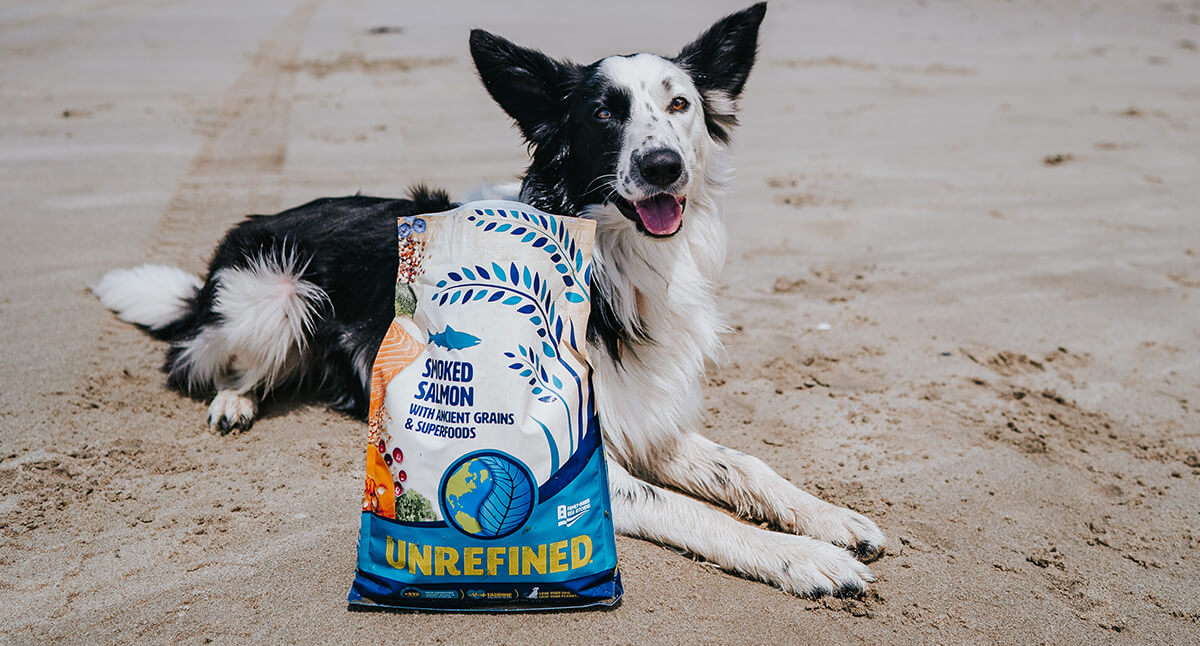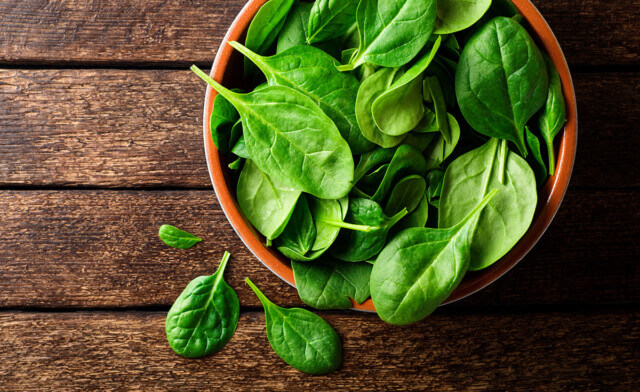Dietary Fiber for Dogs: What You Need to Know
Navigating your dog’s nutritional needs can sometimes feel like a challenge, especially when it comes to essential dietary components like fiber. Much like in humans, dietary fiber plays a pivotal role in a dog’s digestive system, contributing to their overall health and wellness. But why is dietary fiber so important for dogs, and how does it function in their bodies?
In this guide, we’ll explore the role of fiber in maintaining your dog’s overall health. We’ll also take a look at some of the top sources of fiber for dogs and explain how to add more fiber to your furry friend’s diet.

In this guide, we’ll explore the role of fiber in maintaining your dog’s overall health. We’ll also take a look at some of the top sources of fiber for dogs and explain how to add more fiber to your furry friend’s diet.
Why Is Fiber Important for Dogs?
Fiber is crucial for dogs as it promotes healthy digestion, aids in weight management, and provides various overall health benefits. In this section, we’ll explore each of these benefits in detail, shedding light on how fiber functions to support the well-being of your canine companion.
Digestive Health
Fiber is essential for your dog’s digestive health. Soluble fiber helps digestion by serving as food for the good bacteria that live in the colon. By comparison, insoluble fiber adds bulk, aiding with constipation and ensuring regular bowel movements. This helps get rid of waste from your pet’s body efficiently, keeping their digestive system healthy.
Feeding your pup high-fiber dog food or other sources of fiber helps support their gut health. It feeds the good bacteria in the gut, which produce short-chain fatty acids, compounds that nourish the colon wall. These fatty acids are crucial for maintaining the integrity of the intestinal lining and can help prevent issues like colon cancer and anal gland problems, especially in older dogs.
Additionally, fiber helps with nutrient absorption. It slows down the digestion process, allowing for the thorough absorption of vital nutrients from your dog’s food. This means your furry friend gets all the essential nutrients they need to stay healthy and happy.
Weight Management
Fiber plays a crucial role in helping your dog manage their weight. Foods that are high in fiber make dogs feel full more quickly, which can prevent overeating and assist in maintaining a healthy weight. This is especially beneficial for overweight dogs, as it aids in weight loss without compromising nutritional intake.
Feeding high fiber dog foods or adding fiber-rich vegetables like green beans and sweet potatoes to your pet’s diet can make a positive difference. These nutritious additions are not just about maintaining weight – they also contribute to your dog’s overall well-being by providing essential nutrients and promoting a balanced diet.
However, it’s equally important to monitor the amount of fiber your dog consumes. An excess of fiber can lead to digestive issues such as loose stools, so it’s essential to strike the right balance to ensure your pet reaps the benefits without any drawbacks. Balancing fiber intake will contribute to your dog’s overall well-being, supporting a healthy and happy life.
Overall Health Benefits
Incorporating fiber into your dog’s diet is essential, not just for their digestive system, but also for their overall wellbeing. The range of health benefits is extensive, covering everything from maintaining a healthy weight to potentially reducing the risks of colon cancer.
Ensuring a consistent intake of dietary fiber can also lead to improved heart health, a crucial factor for every dog’s longevity and quality of life. Additionally, it plays a significant role in stabilizing blood sugar levels, an essential consideration, especially for dogs dealing with diabetes mellitus.
As mentioned earlier, one of the standout benefits of fiber is its ability to optimize gut health by fostering the growth of beneficial bacteria. This is particularly important as a substantial portion of a dog’s immune system is located in their gastrointestinal tract. A healthy gut equates to a more robust immune system, better equipping your dog to fend off illnesses.
Introducing diverse sources of fiber to your dog’s diet can help maintain a balanced gut flora. This balance is key to enhancing nutrient absorption and promoting overall health and energy. In the next section, we’ll take a look at some of the best sources of fiber to feed your four-legged friend.
Top Sources of Fiber for Dogs
Ensuring a balanced and nutritious diet for your furry friend involves incorporating a variety of fiber-rich foods. Apples, carrots, pumpkin, green beans, and sweet potatoes are all excellent choices that can easily be added to your dog’s meals. These foods are not only packed with fiber but also come with an array of other nutrients that contribute to your dog’s overall health.
Apples
Apples are an excellent source of fiber for dogs, supporting their digestive health and overall well-being. The fiber in apples helps keep bowel movements regular and can prevent issues like constipation or diarrhea.
But that’s not all – apples also contain essential nutrients and antioxidants that are good for your dog’s immune system. To serve them to your pup, you can either cut the apples into small slices for a quick treat or mix finely chopped pieces into their meals.
Just remember to remove the seeds and core before offering apples to your dog, as these parts can be harmful. This way, your dog can enjoy all the benefits of apples safely.
Carrots
Carrots are a fantastic source of dietary fiber for dogs. This crunchy and tasty vegetable is not only low in calories but also packed with essential vitamins and minerals. The high fiber content in carrots helps promote good digestive health in dogs by adding bulk to their stool and preventing constipation.
Additionally, the soluble fibers found in carrots can help regulate blood sugar levels and support overall heart health. To incorporate carrots into your dog’s diet, simply chop them into small pieces or grate them as a topping for their regular food.
Adding a few carrot slices or grated carrots to your dog’s meals can promote proper digestion, keep them feeling full longer, and support weight management efforts if needed.
Pumpkin
Pumpkin is an excellent source of dietary fiber for dogs. It contains both soluble and insoluble fibers, which are beneficial for their digestive health. Soluble fiber helps regulate bowel movements and promotes a healthy digestive tract, while insoluble fiber adds bulk to the stool, preventing constipation.
Including pumpkin in your dog’s diet can also aid in weight management by providing a filling, low-calorie option. You can easily add pumpkin to their meals by incorporating canned pumpkin or steamed fresh pumpkin into their food. Just remember to choose plain pumpkin without any added sugars or spices. Pumpkin pie filling is not suitable, as it contains added sugars, spices, and other ingredients that can be harmful to dogs.
Pumpkin is not only rich in fiber but also packed with essential nutrients such as vitamins A, C, and E, potassium, and iron, which contribute to your dog’s overall health. These nutrients can support immune function, improve skin and coat health, and provide anti-inflammatory benefits.
When introducing pumpkin to your dog’s diet, start with small amounts to monitor their reaction and gradually increase the portion if well-tolerated. This gradual introduction helps prevent any digestive upset and allows your dog to acclimate to the new addition to their diet.
Green Beans
Green beans are also an excellent source of soluble and insoluble fiber. Plus, they contain beneficial nutrients that are great for your pup’s health, including vitamins, A, C, and K, magnesium, and potassium.
You can easily incorporate green beans into your dog’s diet by steaming or boiling them until they’re soft. Just make sure to let them cool before serving to avoid any burns. As with any dietary change, it’s important to monitor your dog’s response and consult with your vet if you have any concerns.
Sweet Potatoes
Sweet potatoes are another great source of dietary fiber for dogs, contributing to a healthy digestive system by providing a balance of soluble and insoluble fibers. The high fiber content helps regulate bowel movements and prevents constipation in dogs.
Additionally, sweet potatoes contain essential nutrients like beta-carotene, vitamin C, and potassium, which contribute to overall health benefits for your furry friend. To incorporate sweet potatoes into your dog’s diet, you can cook and mash them or add them as a tasty ingredient to homemade dog treats.
Incorporating Fiber into Your Dog’s Diet
As we’ve seen, ensuring your dog gets enough fiber is key to their health and wellbeing. In this section, we’ll explore some simple ways to incorporate more fiber into your pup’s diet, so they can enjoy the full range of benefits it offers.
Whether you’re looking to improve digestion, manage weight, or simply enhance overall health, these tips will help you boost your dog’s fiber intake safely and effectively.
Feed a Healthy, Balanced Diet
Feeding your dog a healthy, balanced diet is essential for their overall well-being and proper digestion. A well-balanced diet should include high-quality proteins, carbohydrates, fats, vitamins, minerals, and of course, fiber.
At Earthborn Holistic, we understand the importance of providing your dog with wholesome nutrition. That’s why our holistic dog food recipes are crafted with your dog’s overall health in mind, considering the nutritional needs of the animal as a whole.
Whether it’s essential amino acids for proper brain development or vitamins and minerals to support healthy body function, our recipes support your dog’s health in every aspect.
Add Fiber-Rich Foods
Adding fiber-rich foods to your dog’s diet is an excellent way to improve their overall health. These foods contain important nutrients that aid in digestion, regulate bowel movements, and promote a healthy digestive tract.
As mentioned earlier, apples, carrots, pumpkin, green beans, and sweet potatoes are all great options when it comes to adding fiber to your dog’s meals. By incorporating these fiber-rich foods into their diet regularly, you can ensure that your furry friend stays happy and healthy for years to come.
Give Vet-Approved Supplements
Fiber supplementation can be a great way to ensure your dog is getting enough fiber in their diet. These supplements are specifically formulated with your dog’s health in mind, providing an easy and convenient way to boost their fiber intake.
Before adding any supplement to your dog’s diet, it’s important to consult with your veterinarian to determine the right dosage for your furry friend. They will help assess your dog’s individual needs, consider any underlying health conditions, and provide guidance on the most suitable supplements and dietary adjustments.
Monitor Your Dog’s Fiber Intake
Monitor your dog’s fiber intake to ensure they’re getting the right amount for their health. Too little fiber can lead to digestive issues like constipation, while too much can cause diarrhea or other gastrointestinal problems. That’s why it’s vital to find the right balance for your dog’s individual needs.
To monitor your dog’s fiber intake, pay attention to the type and quantity of high-fiber foods you include in their diet. It’s also important to keep track of any changes in their bowel movements and overall digestion.
If you notice any unusual changes, make sure to book an appointment with your vet as soon as possible. Keep in mind, that every dog is unique, so determining the correct fiber intake for your furry friend may take a bit of trial and error.
Key Takeaways
- Dietary fiber is crucial for dogs, playing a significant role in promoting healthy digestion, aiding in weight management, and offering various overall health benefits.
- The benefits of fiber are varied, extending beyond digestion to include improved heart health, stabilized blood sugar levels, and potentially reducing the risk of colon cancer.
- High-quality, fiber-rich foods such as apples, carrots, pumpkin, green beans, and sweet potatoes are excellent additions to your dog’s diet, providing essential nutrients alongside fiber.
- Incorporating fiber into your dog’s diet involves feeding them a balanced diet, introducing fiber-rich foods, considering vet-approved supplements when necessary, and carefully monitoring their fiber intake.
- It’s essential to strike a balance in fiber intake, as both too much and too little can lead to digestive issues. Observing any changes and consulting with a veterinarian ensures the well-being of your furry friend.
- Monitoring and adjusting your dog’s fiber intake, based on individual needs and any observed changes, is key to optimizing their health and avoiding any potential issues.
Conclusion
Incorporating dietary fiber into your dog’s diet is essential for their overall health and well-being. It helps to promote a healthy digestive system, manage weight, and prevent a variety of health issues. By taking steps like feeding a healthy, balanced diet and including fiber-rich foods in their meals, you can provide your dog with the necessary fiber they need to thrive. Just remember to consult with your vet for personalized recommendations on how much fiber is appropriate for your furry friend.




